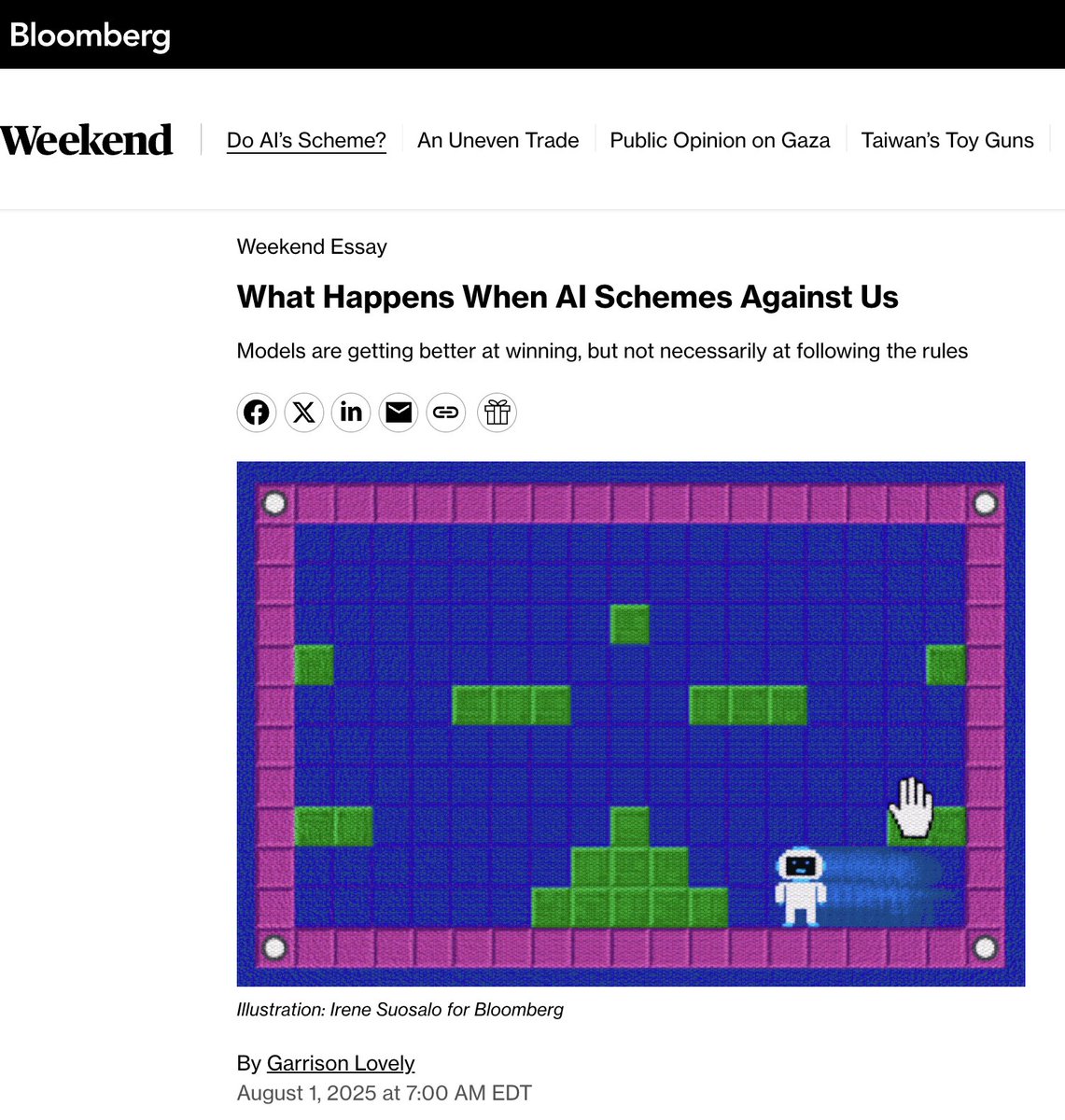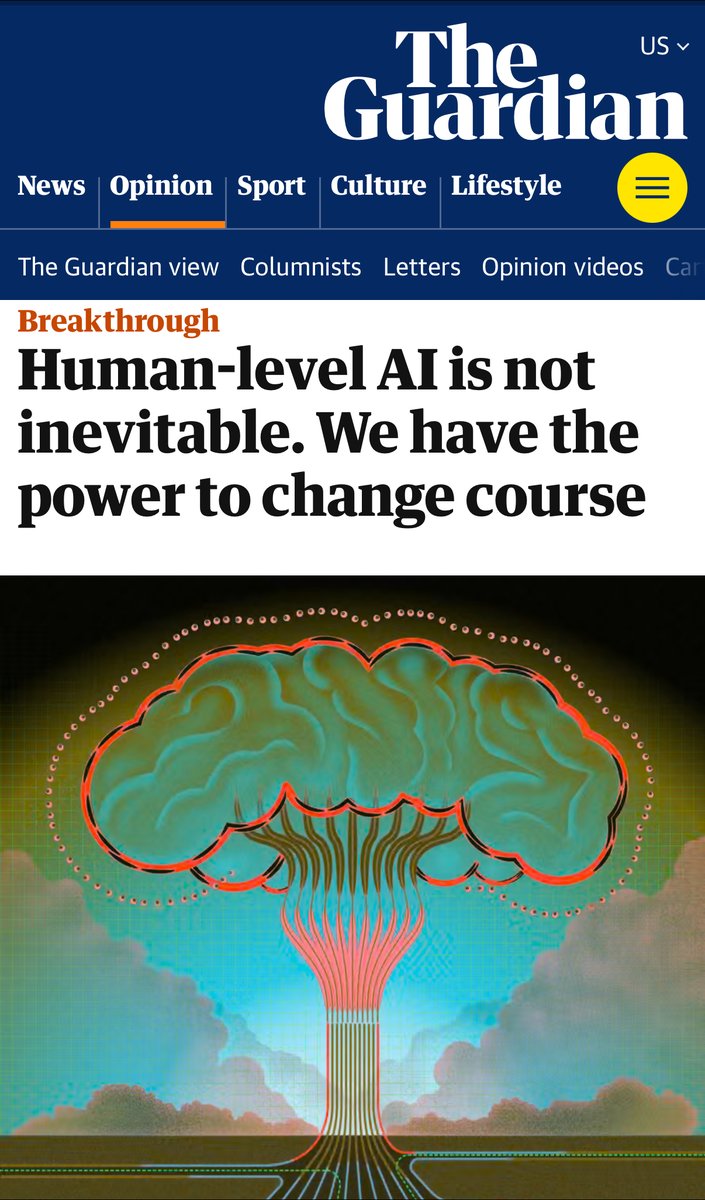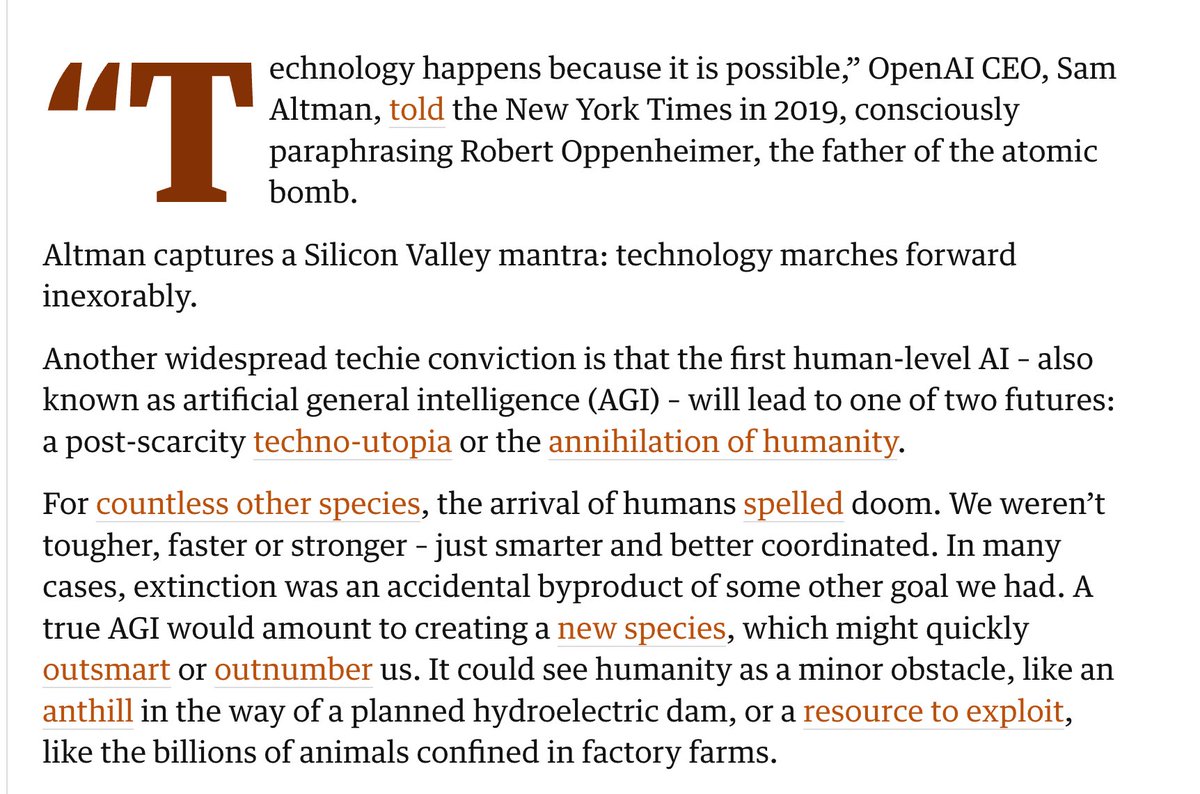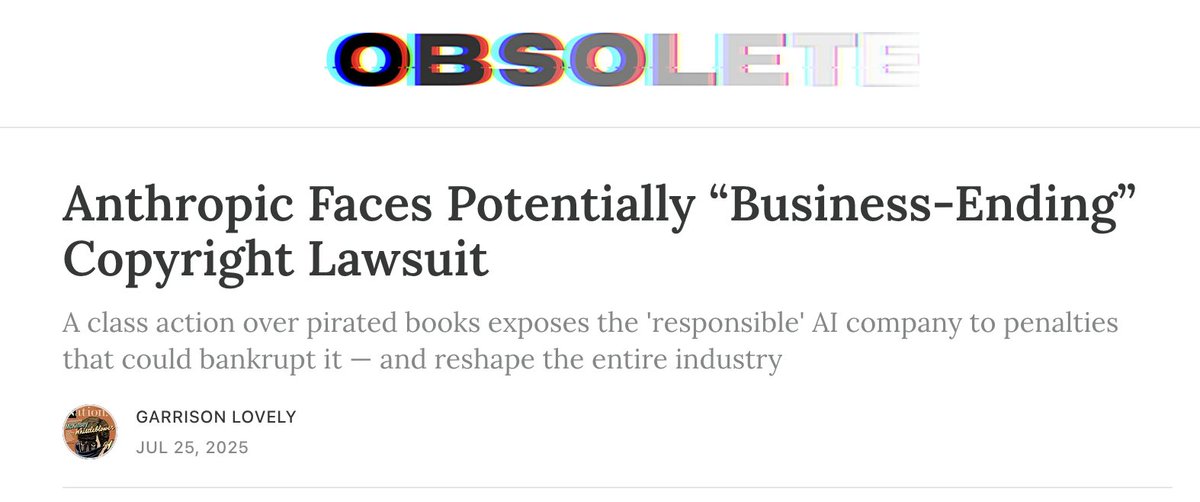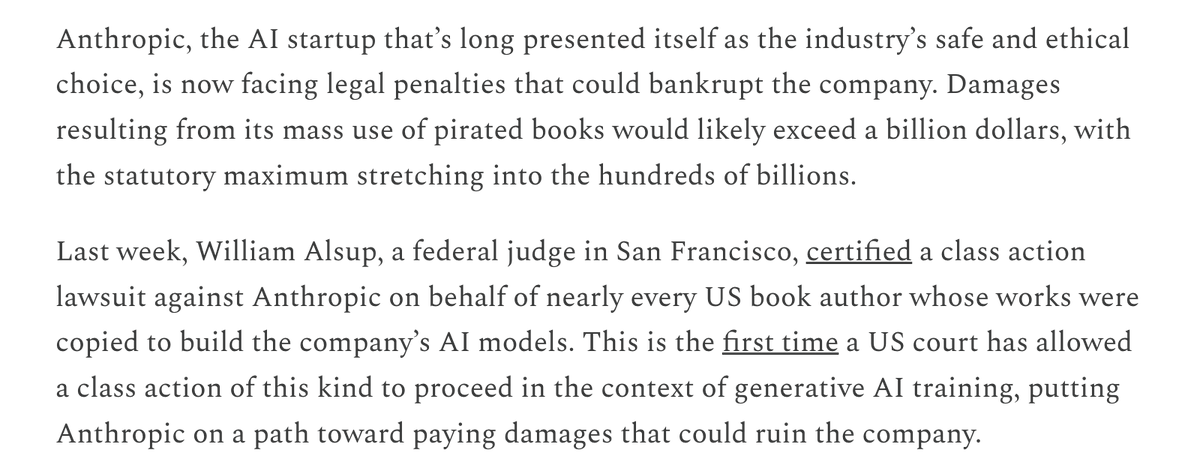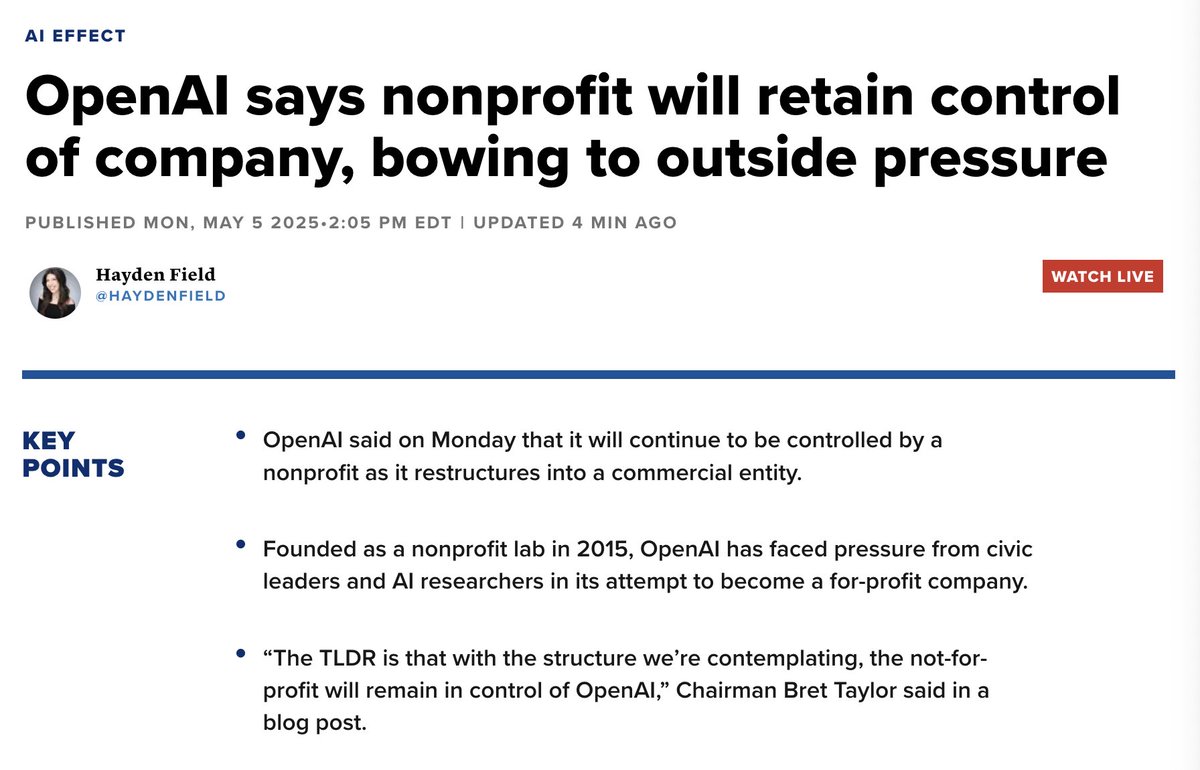Seems like more people should be talking about how a libertarian charter city startup funded by Sam Altman, Marc Andreessen, and Peter Thiel is trying to bankrupt Honduras.
Próspera is suing Honduras to the tune of $11B (GDP is $32B) and is expected to win, per the NYT 🧵
Próspera is suing Honduras to the tune of $11B (GDP is $32B) and is expected to win, per the NYT 🧵

Basically, the libertarian charter city startup Próspera made a deal with a corrupt, oppressive post-coup govt in Honduras to get special economic status. This status was the result of court-packing and is wildly unpopular. A democratic govt is trying to undo the deal… 

In response, Próspera is suing the govt for ⅔ of its annual state budget. An op-ed in Foreign Policy states that the suit’s success “would simply render the country bankrupt.” ... foreignpolicy.com/2024/01/24/hon…


The longer story appears to be (from the Foreign Policy op-ed):
2009: military coup results in a corrupt and oppressive post-coup govt
2011: This govt decrees special “employment and economic development zones,” called ZEDEs ...
2009: military coup results in a corrupt and oppressive post-coup govt
2011: This govt decrees special “employment and economic development zones,” called ZEDEs ...

2012: Honduras’ Constitutional Court finds decree unlawful so Honduran Congress swaps out judges for pro-ZEDE judges
2013: new court rules in favor of ZEDEs
2017: Próspera ZEDE granted official status…
2013: new court rules in favor of ZEDEs
2017: Próspera ZEDE granted official status…

Nov 2021: Center-left govt led by Honduras’ first female president Xiomara Castro takes power
April 2022: new govt votes unanimously to repeal ZEDE law…
April 2022: new govt votes unanimously to repeal ZEDE law…

Dec 2022: “Próspera announced that it was seeking arbitration at the International Centre for Settlement of Investment Disputes (ICSID) for a sum of nearly $10.8 billion.” (Image is from NYT Mag article: ) ... nytimes.com/2024/08/28/mag…


Próspera is incorporated in Delaware and has received support from the US ambassador to Honduras and the State Dept, despite Biden’s stated opposition to these kinds of investment-state arbitrations…




I had never heard of the ICSID, but it sounds like a thought experiment dreamt up by leftists trying to show the absolute worst sides of capitalism... 

This is what thew new president had to say about the special economic zones: “Every millimeter of our homeland that was usurped in the name of the sacrosanct freedom of the market, ZEDEs, and other regimes of privilege was irrigated with the blood of our native peoples.” ... 

Próspera is funded by Pronomos Capital, which is advised, among others, by Balaji S. Srinivasan, a former partner at Andreessen Horowitz, who wants to partner with the police to take over San Francisco (some people might call this impulse fascistic).
... newrepublic.com/article/180487…


... newrepublic.com/article/180487…


So Silicon Valley billionaires are backing a project that is trying to bankrupt a poor country for reneging on a deal struck with people who have been indicted on corruption, drug trafficking, and weapons charges. These same billionaires want to build superhuman AI ASAP... 

and are vigorously resisting regulation of such technology. If you'd like to see how they'd govern the world with a superintelligent AI, it might be instructive to see how they act now. thenation.com/article/societ…
My good friend Ian MacDougall had a fantastic story on Próspera w/ Isabelle Simpson in Rest of the World a few years back. The roots of this story can be found there. ...restofworld.org/2021/honduran-…
If you enjoyed this, check out my Substack: garrisonlovely.substack.com
• • •
Missing some Tweet in this thread? You can try to
force a refresh



